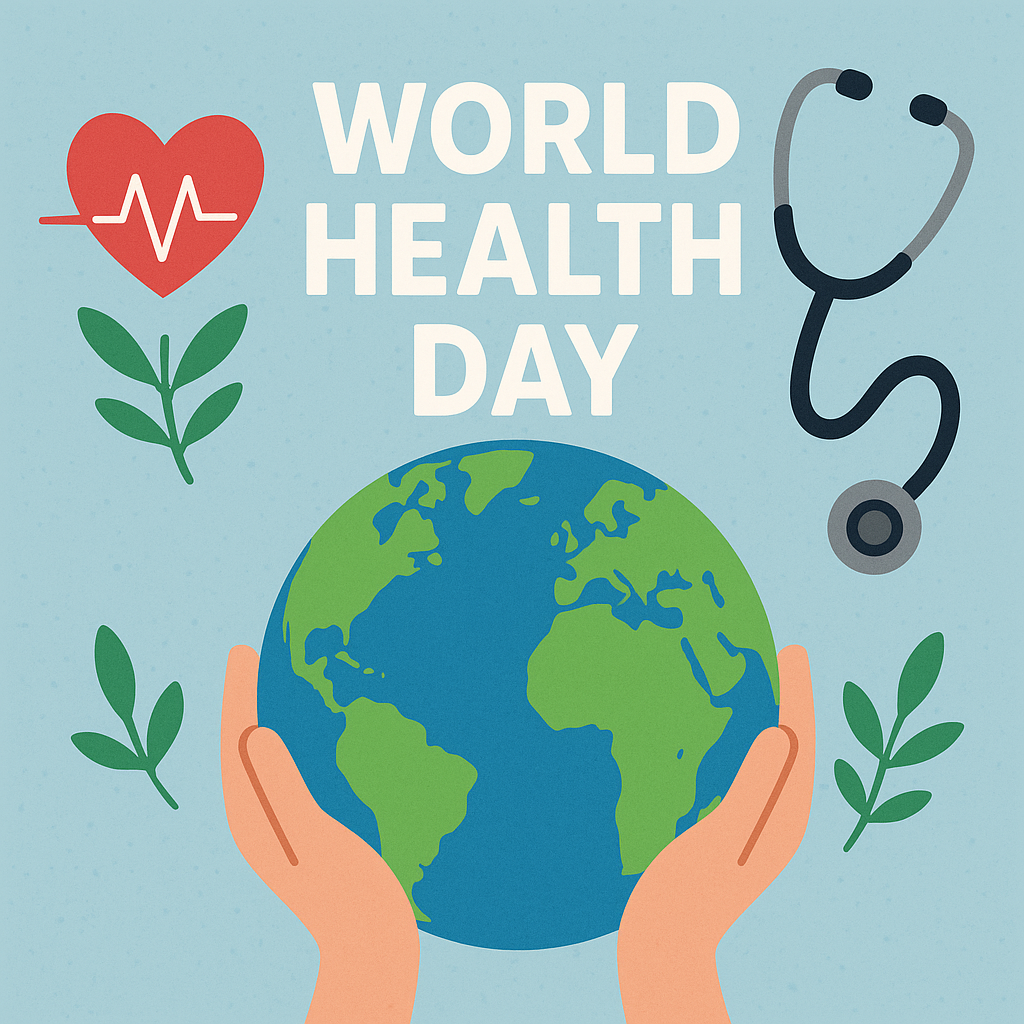Every year, World Health Day shines a light on pressing global health issues, and in 2025, the focus is on “Healthy Beginnings, Hopeful Futures.” This theme, set by the World Health Organization (WHO), highlights the importance of maternal and newborn health, but its message extends beyond early life.
Good health starts with everyday choices, and understanding how to improve wellbeing can have lasting benefits. From maintaining a mental and physical health balance to supporting gut health and wellbeing, small, consistent steps can improve overall quality of life.
Supporting maternal and newborn health doesn’t just benefit early life—it lays the foundation for long-term community wellbeing, reducing health inequalities and creating stronger, healthier societies overall.
This article explores the science of wellbeing, shares healthy lifestyle tips, and introduces concepts like biohacking for beginners—all to help you take control of your health.
What is World Health Day?

World Health Day is an annual event held on 7th April, marking the founding of the World Health Organization (WHO) in 1948. Each year, it focuses on a key health issue affecting global communities.
The theme for World Health Day 2025, “Healthy Beginnings, Hopeful Futures,” emphasises the importance of maternal and newborn health. Ensuring a healthy start in life not only benefits individuals but strengthens entire societies by reducing health inequalities and improving long-term wellbeing.
Studies show that access to quality maternal care leads to improved childhood development, educational outcomes, and a lower risk of chronic disease later in life (NHS, 2023).
Over the years, World Health Day has addressed topics like mental health, universal healthcare, and environmental health, highlighting the interconnected nature of mental and physical health balance. This year’s focus serves as a reminder that how we care for our health today impacts future generations.
Understanding the science of wellbeing can help individuals take meaningful steps towards a healthier future—both for themselves and their loved ones.
The Science of Wellbeing
Wellbeing isn’t just about feeling good—it’s a state of physical, mental, and emotional balance that directly influences health and longevity. Research shows that people who prioritise their mental and physical health balance tend to live longer, experience lower stress levels, and have a reduced risk of chronic diseases.
Core contributors to wellbeing include:
- Balanced nutrition
- Daily physical activity
- Restorative sleep
- Meaningful social connections
- Effective stress management
For example, research published in The Lancet (Chekroud et al., 2018) found that individuals who exercised regularly experienced 43% fewer days of poor mental health per month compared to those who didn’t.
Additionally, emotional wellbeing is important. Practices like mindfulness and gratitude can rewire the brain for better stress management and emotional resilience. Even gut health has a surprising impact—emerging research suggests that a healthy gut microbiome supports mental clarity and mood regulation.
By making small, intentional lifestyle changes, anyone can improve their wellbeing. Whether it’s through healthy lifestyle tips, better sleep habits, or mindful eating, the goal is to create sustainable habits that lead to lasting health benefits.
Maintaining a Healthy Weight
Weight management isn’t about quick fixes—it’s about long-term health and wellbeing. A healthy weight reduces the risk of conditions like heart disease, diabetes, and joint problems, while also supporting mental and physical health balance.
One of the biggest misconceptions about weight loss is that drastic dieting is the only solution. In reality, sustainable habits make the biggest impact. Simple changes—like eating more whole foods, staying hydrated, and getting enough sleep—can naturally support a healthy metabolism.
Regular physical activity also plays a key role. This doesn’t mean hours in the gym; even daily walks, strength training, or yoga contribute to maintaining a healthy weight. Pairing movement with nutrient-dense meals—rich in fibre, protein, and healthy fats—helps keep energy levels stable and prevents cravings.
Mindset matters too. Studies show that people who focus on overall wellbeing rather than just weight loss are more likely to develop sustainable habits. Instead of restrictive diets, adopting healthy lifestyle tips that fit into daily routines leads to lasting results without the stress of yo-yo dieting.
The NHS’s Better Health initiative offers free resources and simple, evidence-based strategies to help individuals manage weight without fad diets or drastic restrictions.
For busy professionals, time-saving habits like batch-prepping meals or taking short walking breaks during the workday can support a healthier lifestyle without overhauling your schedule.
Looking After Our Gut

Your gut does more than just digest food—it plays a vital role in overall wellbeing, from immunity to mental health. The gut-brain connection means that a healthy digestive system can improve mood, energy levels, and even sleep quality.
A diverse gut microbiome—the range of bacteria and organisms in your digestive tract—has been linked to better immunity, mood stability, and metabolic function (Lloyd-Price et al., 2019).
Keep in mind, however, that everyone’s digestive system is different. If you experience persistent symptoms, it’s important to speak to a qualified healthcare provider for personalised advice.
Eating a balanced diet rich in fibre, fermented foods, and lean proteins helps nourish these microbes. Foods like yoghurt, kefir, kimchi, and sauerkraut provide natural probiotics, while prebiotic foods like bananas, garlic, and oats help feed good bacteria.
Poor gut health has been linked to issues like inflammation, fatigue, and anxiety. Research suggests that prioritising digestive health may reduce symptoms of stress and improve cognitive function. Simple habits—such as staying hydrated, managing stress, and avoiding excessive processed foods—help maintain a healthy gut environment.
Since gut health influences both physical and mental wellbeing, making small dietary adjustments can have a big impact. Taking care of digestion isn’t just about avoiding discomfort—it’s about supporting long-term health and vitality.
Biohacking for Better Wellbeing
You may have come across the term “biohacking”—it’s essentially about making intentional, science-informed tweaks to your daily habits to improve energy, sleep, and mental clarity.
Popular techniques include morning sunlight exposure to reset your circadian rhythm, cold showers to stimulate circulation, and intermittent fasting to support metabolism.
Nutrition plays a key role in biohacking for beginners. Techniques like intermittent fasting, tracking nutrient intake, and prioritising gut health can improve digestion and metabolism. Some people also experiment with nootropics—natural supplements that support cognitive function.
However, biohacking isn’t about extreme methods. Safety and sustainability are essential, so it’s important to choose approaches that fit individual needs. Whether it’s adjusting diet, improving sleep, or practising mindfulness, small tweaks can lead to significant benefits.
Before experimenting with any new supplements or significant lifestyle changes, especially those that affect your sleep or diet, it’s best to consult a healthcare professional or GP.
For evidence-based UK guidance, the NHS’s sleep hygiene tips are a helpful starting point.
Taking part in World Health Day 2025 isn’t just symbolic—it’s a chance to reflect on your own health goals and contribute to a culture that values lifelong wellbeing, beginning with a healthy start for every new generation.
Whether it’s maintaining a mental and physical health balance, improving gut health and wellbeing, or exploring biohacking for beginners, there are many ways to support overall wellbeing.
The key is to start with manageable changes—whether that’s prioritising sleep, eating more whole foods, or staying active. Good health isn’t about perfection; it’s about consistency and self-care


